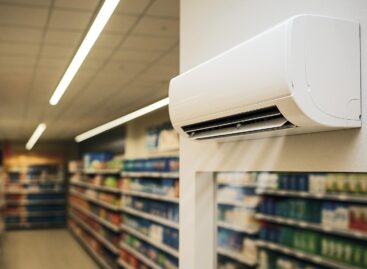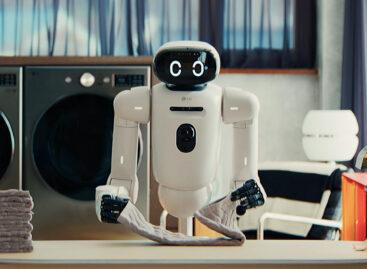These are the 5 most common myths about air conditioners
During the hot summer months, air conditioners once again take center stage in ensuring household comfort. However, there are still many myths surrounding their healthy and energy-efficient use. LG has compiled and debunked the most common misconceptions about AC usage.

Myth: No need to ventilate if you have air conditioning
Many people wrongly assume that air conditioners not only cool or heat the room, but also bring in fresh air from outside. In reality, most AC units simply recirculate, cool or heat, filter, and dehumidify indoor air. This means regular ventilation is still necessary, ideally during early morning or late evening hours when outdoor temperatures are lower. The most effective method is cross-ventilation, which ensures a quick and thorough air exchange without significantly warming up the interior.
Myth: Setting the AC to a very low temperature cools the room faster
One of the most common misconceptions is that the lower the temperature setting, the faster the room cools. However, the cooling speed depends on the unit’s capacity, not the target temperature. Setting the thermostat to 16°C instead of 24°C won’t make the AC work faster — just longer. Using a higher fan speed is a more effective way to accelerate cooling. Also, maintaining a consistent indoor temperature enhances comfort and energy efficiency. Therefore, it’s not recommended to turn off the AC completely during the day, even if you’re away.
Myth: Air conditioning is harmful to your health
Many believe that air conditioners cause colds or respiratory issues, but these are easily avoided with proper usage. It’s advisable to keep the temperature difference between indoors and outdoors within 8–10°C, allowing the body to adjust gradually. Also, avoid sitting directly in the cold airflow, as even mild drafts can lead to discomfort. Modern smart ACs equipped with AI Air technology automatically adjust airflow based on room occupancy and temperature. Features like Soft Air mode also ensure indirect airflow once the desired temperature is reached.
Built-in filters further ensure healthy indoor air by removing dust, allergens, and certain pathogens. However, without regular maintenance, the AC can become a breeding ground for bacteria and mold, potentially triggering asthma symptoms.
Myth: Air conditioners don’t need cleaning
Contrary to popular belief, air conditioners are not self-cleaning. Filters must be regularly cleaned or replaced, and heat exchangers chemically treated — primarily to protect your health. This should be done at least once a year, ideally before the cooling season begins. If you use the unit for heating as well, a second check in autumn is recommended. Some models feature automatic or frost-cleaning functions that remove contaminants between manual maintenance cycles.
Don’t forget about the outdoor unit either. Large volumes of air pass through the condenser fins, collecting dust and debris, even if the air doesn’t seem particularly dirty. While this may not pose immediate health risks, it significantly reduces efficiency, increasing energy use — and your electricity bill.
Myth: Air conditioning is bad for pets
Some worry that ACs harm pets, but LG experts say the opposite is true — as long as basic rules are followed. Pets such as dogs and cats regulate heat differently than humans and are more vulnerable to overheating, which can lead to heatstroke. ACs help prevent this by actively cooling the air, unlike fans. Just like with humans, avoid direct cold drafts and large temperature gaps between indoors and outdoors. Regular cleaning is also vital for pet health, since bacteria and mold buildup can affect them too.
Related news
Green transition on the air conditioning market
🎧 Hallgasd a cikket: Lejátszás Szünet Folytatás Leállítás Nyelv: Auto…
Read more >LG Unveils AI-Powered Home Robot at CES 2026
🎧 Hallgasd a cikket: Lejátszás Szünet Folytatás Leállítás Nyelv: Auto…
Read more >LG has published its third-quarter financial report
🎧 Hallgasd a cikket: Lejátszás Szünet Folytatás Leállítás Nyelv: Auto…
Read more >Related news
Delhaize launches summer cooking camps for children in Belgium
🎧 Hallgasd a cikket: Lejátszás Szünet Folytatás Leállítás Nyelv: Auto…
Read more >







